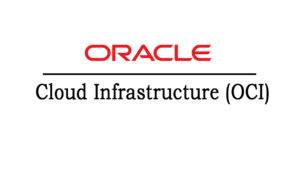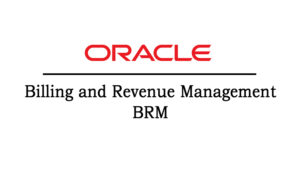Puppet (DevOps) Certification Training
One of the top providers of online IT training worldwide is VISWA Online Trainings. To assist beginners and working professionals in achieving their career objectives and taking advantage of our best services, We provide a wide range of courses and online training.
Learners : 1080
Duration : 20 Days
About Course
An open-source configuration management solution for the deployment, configuration, and management of servers is Puppet, which is covered in our online training courses. Puppet Enterprise can alternatively be thought of as a DevOps software platform designed specifically for automating infrastructure management chores. Puppet has a variety of capabilities, including automated provisioning, task management, code management, reporting, and infrastructure automation. In addition to tools for discovery and insights, Puppet also offers features for orchestration. Enrol today to earn your certification.
Puppet Training Course Syllabus
| Live Instructor Based Training With Software |
| Lifetime access and 24×7 support |
| Certification Oriented content |
| Hands-On complete Real-time training |
| Get a certificate on course completion |
| Flexible Schedules |
| Live Recorded Videos Access |
| Study Material Provided |
Puppet Training - Upcoming Batches
Coming Soon
8 AM IST
Coming Soon
AM IST
Coming Soon
8 PM IST
Coming Soon
PM IST
Don't find suitable time ?
CHOOSE YOUR OWN COMFORTABLE LEARNING EXPERIENCE
Live Virtual Training
-
Schedule your sessions at your comfortable timings.
-
Instructor-led training, Real-time projects
-
Certification Guidance.
Self-Paced Learning
-
Complete set of live-online training sessions recorded videos.
-
Learn technology at your own pace.
-
Get access for lifetime.
Corporate Training
-
Learn As A Full Day Schedule With Discussions, Exercises,
-
Practical Use Cases
-
Design Your Own Syllabus Based
Puppet Training FAQ'S
For the deployment, setup, and management of servers, P-uppet is an open-source configuration management tool. P-uppet Enterprise can alternatively be thought of as a DevOps software platform designed specifically for automating infrastructure management chores. Puppet has a variety of capabilities, including automated provisioning, task management, code management, reporting, and infrastructure automation. In addition to tools for discovery and insights, Puppet also offers features for orchestration.
By learning through VISWA Online Trainings, advance in your job.
A Master-Slave architecture is used by Puppet. To create a secure connection, the P-uppet Slave must send a request to the P-uppet Master. Along with a request for a slave certificate, the puppet master transmits the master certificate. The P-uppet Slave then sends the Slave Certificate and a data request to the P-uppet Master. Following receipt of the request, the P-uppet Master pushes the configuration to the P-uppet Slave.
The best approach to answer this question is to use P-uppet Manifests. The configuration information for each node or p-uppet agent is stored in the p-uppet master and is written in the puppet language. P-uppet Manifests are the name for these documents. As a result, you can see that Manifests are created using P-uppet code. Manifests can be distinguished thanks to their.pp extension. Manifests are therefore puppet programmes.
A library called Facter finds and informs the P-uppet Master of Facts pertinent to each Agent. SSH keys, network settings, device specifics, IP addresses, OS kind and version, and Mac addresses are just a few examples of the facts that can be included. The Manifests of the Puppet Master then contain the facts as variables.
P-uppet agent nodes and P-uppet Masters communicate over HTTPS with client verification. There are various endpoints on the HTTP interface of the P-uppet Master. In order to request or submit anything to the master, agents send an HTTPS request to the endpoints. In this instance, client verification suggests the requirement for an SSL certificate. The SSL certificates assist in confirming the other party’s identity. For the efficient handling of certificates, P-uppet also has a built-in certificate authority.
Reviews
Trustindex verifies that the original source of the review is Google. I have gone through the you tube videos and there concept is very clear. Easy to understand and even learn very strongly. I will keep in touch on you tube to get the knowledge.Trustindex verifies that the original source of the review is Google. Have a great and Happy learningTrustindex verifies that the original source of the review is Google. VISWA Online Trainings is an Online Live Training on Selenium with Python and Other part of IT training as well. Its is Really helping student on their career. VISWA Online Trainings is worldwide helping to students.Trustindex verifies that the original source of the review is Google. Course: SAP BW ON HANA October 2024 Batch Trainer: Anil My Feedback / Rating: very good to excellentTrustindex verifies that the original source of the review is Google. I recently completed the VISWA Online Trainings, and I must say it exceeded my expectations in every way. The instructors were incredibly knowledgeable and engaging, making even complex topics easy to understand. The course structure was well-planned, with a perfect balance of theory and hands-on exercises. I especially appreciated the practical insights and real-world examples provided throughout the training, which have already proven invaluable in my day-to-day work. Overall, I highly recommend this course to anyone looking to enhance their skills and knowledge in SCCM.Trustindex verifies that the original source of the review is Google. I was enrolled for Oracle RAC. Initially I was skeptical about it but after I spoke with the counselor all my doubts were clear. Training was really good instructor was knowledgeable and was able to understand and clear my doubts. I am happy with VISWA Online Trainings and would recommend to my friends and colleagues for any training and certification.Trustindex verifies that the original source of the review is Google. I am taking training from Chenna Reddy for Sap Commerce Cloud and He is very professional and explaining well.Trustindex verifies that the original source of the review is Google. VISWA online trainings is providing Very good training sessions. I have attended Azure devops classes ,well designed content ; Even I'm a fresher to this sector It's easy to understand all the concepts explained by Pavan Sir. Highly RecommendableTrustindex verifies that the original source of the review is Google. Data Modelling Chandrasekar Training, Chandra shared real time documents and training its helpful more.Trustindex verifies that the original source of the review is Google. Data Modelling Chandrasekar Training, Chandra shared real time documents and training its helpful more.




